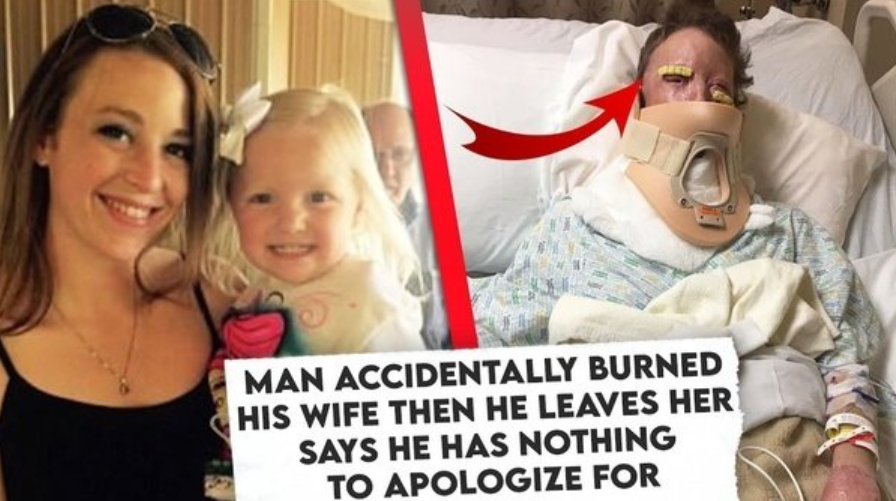
When I was 23 years old, I traveled to New York and started a new chapter of my life there. I became a mother to two beautiful children. However, in 1996, circumstances led me to return to the UK with my children so they could attend school here. Back in the UK, I embarked on a career in accounting and was fortunate enough to secure a job as a facilities administrator for the police. I dedicated 15 years to working in accounting and payroll in bustling London.
As time went on, my youngest daughter decided to move back to the United States in 2009 and pursue a career in the military. Wanting to support her and be closer to her, I made the difficult choice to leave the UK and join her in the US. By September 2014, I had settled in the US and was excitedly training to become a medical assistant. Unfortunately, during this time, I received some distressing news that would change my life. Doctors discovered cancer in my colon.
Thankfully, I underwent a successful surgery to remove it, and I was able to rely on my insurance from work to cover the medical expenses. However, my health took another turn when I experienced my first heart attack. I spent several weeks in the hospital recovering, but the challenges were not over. In April 2017, I suffered another heart attack, and this time I couldn’t afford insurance since I had been unable to work.
Facing these health setbacks, I leaned on the support of my caring friends and family. However, life had more difficulties in store for me. I developed osteoarthritis, which caused me great pain and led to the need for a hip replacement. With limited financial resources and aware that I couldn’t rely on my loved ones indefinitely, I made the difficult decision to return to the UK in search of medical assistance and support. However, upon arriving at Heathrow Airport, I was met with disappointment and confusion.
Authorities instructed me to go back to the borough I had previously lived in, Brent Council. But when I reached out to them, they informed me that I needed to prove my residency for the past three months before they could offer me any benefits. Feeling lost and uncertain, I spent my first night waiting at a McDonald’s restaurant for an outreach team that unfortunately never arrived. However, there was a kind-hearted lady working there who listened to my story and offered me a place to stay for the weekend.
In the midst of uncertainty, I eventually found temporary shelter in a church hall that served as a night shelter for individuals in need. It was during my stay there that I discovered Crisis Brent, an incredible organization that helps people experiencing homelessness. When the night shelter closed its doors in March 2019, Crisis stepped in to support me further.
They provided financial assistance for me to stay in a bed and breakfast, and they even connected me with a lawyer to navigate the complex system. After a long and challenging process, Brent Council finally recognized my British citizenship and acknowledged the urgency of my medical needs.
They offered me temporary accommodation, but unfortunately, the room they provided was located on the 52nd floor, which made it impossible for me to access due to my health limitations. Another offer came in, this time in High Wycombe, but I had to decline as attending my essential hospital appointments would have been exceedingly difficult.

Throughout this journey, Crisis remained a source of unwavering support. They arranged for my stays at different places, including a Travelodge, a hostel, and another hotel. Their dedication to helping me find a stable living situation was evident.
Eventually, they referred me to SHIPS (Single Homeless Intervention and Prevention Scheme), which placed me in a privately rented room within a shared house. However, the temporary accommodation options they presented me with were not suitable
for my long-term needs. One of the options they showed me was a converted garage, which was far from ideal. It became clear that finding a safe and stable home was proving to be a challenging task.
Currently, I find myself in Neasden, residing in the smallest room of a converted house that has a total of six rooms. The room is cramped, and the single bed provided poses difficulties for me due to my hip condition. Financially, I rely on universal credit, but it barely covers my monthly rent of £879.80, leaving me with little room for other essential expenses.
As if the challenges of my living situation weren’t enough, the ongoing lockdown has added another layer of difficulty. Being in a shared house means sharing a kitchen with other tenants. Unfortunately, some of the other residents do not take the lockdown and self-isolation measures seriously. They frequently have visitors coming and going, increasing the risk of exposure to the coronavirus.
Given my recent hip replacement surgery and other underlying health conditions, this situation causes great concern for my well-being. To minimize the risk, I confine myself to my small room, but the lack of space prevents me from exercising and staying physically active, leading to stiffness and discomfort.
Adding to my worries, the cancellation of physiotherapy appointments due to the lockdown has disrupted my path to recovery. I should be attending physio sessions to aid in my rehabilitation, but the circumstances have forced a pause in my treatment.
On top of that, the planning department has deemed the current accommodation unsuitable and unfit for purpose. While a move to a more suitable place is anticipated, it remains on hold until the lockdown restrictions are lifted. The uncertainty and the thought of potentially being relocated to another challenging living situation weigh heavily on my mind, exacerbating feelings of anxiety, sleepless nights, and severe depression. It feels like an uphill battle, and at times, I wonder if I will ever find a safe and secure place that I can call my own.
In the midst of these overwhelming circumstances, I am immensely grateful for the support I have received from Crisis. They have not only provided me with access to essential resources such as food banks but also connected me with compassionate volunteers who have assisted me with grocery shopping.
Their presence has been a source of comfort and companionship in a time when I lack family support, making the loneliness a little more bearable. Without the help and guidance of Crisis, I shudder to think where I would be.
Though I continue to face immense challenges and uncertainties, I hold onto hope. Hope for a brighter future where I can overcome my health issues, secure stable and suitable accommodation, and regain a sense of stability and security.
I long for the day when I can create a safe and nurturing home for myself, free from the burden of uncertainty and hardship. Until then, I rely on the support of organizations like Crisis and the resilience within myself to navigate these difficult times and keep the flame of hope alive.
This story teaches us important lessons:
Life can be unpredictable: The story shows that life doesn’t always go the way we expect. Unexpected events and challenges can come our way, causing significant changes in our lives.
Health is valuable: The protagonist faced serious health problems, such as cancer and heart attacks. This reminds us of the importance of taking care of our health and seeking medical help when necessary.
Support from family and friends is crucial: The protagonist relied on the help and support of loved ones during difficult times. Their assistance provided comfort and aid during financial and emotional struggles.
Dealing with bureaucracy can be difficult: The story highlights the challenges faced when navigating government systems and agencies. It sheds light on the complexities individuals may encounter when trying to access benefits and support.
Nonprofit organizations play a vital role: Crisis, a nonprofit organization, provided essential support to the protagonist. Their services, including accommodation and legal aid, demonstrate the important role nonprofits play in helping those in need.
Isolation can have negative effects: The protagonist experienced loneliness and isolation, which worsened feelings of depression and anxiety. This emphasizes the significance of social connections and the negative impact that prolonged isolation can have on mental well-being.
Hope and resilience are crucial: Despite facing numerous challenges, the protagonist held onto hope and demonstrated resilience. It reminds us of the power of maintaining a positive outlook and finding strength in difficult times.




